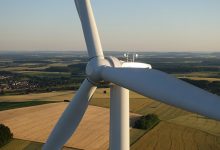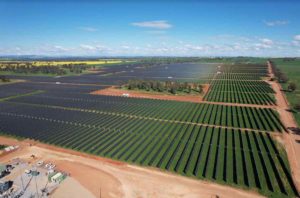New statistics published by the International Energy Agency outline how coal-fired generation is bearing the brunt of Covid-19 triggered cuts to energy use, while renewable energy supplies continue to flourish.
The latest monthly statistics published by the IEA found that in OECD countries, which include Australia, electricity generation from coal fell a massive 21.6 per cent in March, compared to the same period 12-months prior.
Meanwhile, the share of electricity generated from solar generation grew an impressive 15.6 per cent, with wind adding an additional 4 per cent in March. Gas generation was comparatively stable, increasing 2.7 per cent in March, driven by increased demand from Northern American members of the OECD.
This trend has been reflected in Australia, with coal generation falling 11 per cent in March, while renewables generation increased 19.3 per cent. Overall demand for electricity in Australia in March was down 7.8 per cent compared to the previous year.
The drop in coal production significantly outpaces the overall fall in total electricity consumption, which fell 3.6 per cent in March across all OECD countries, as the economic impacts of Covid-19 shutdowns started to have an impact on economic activity.

However, renewable electricity generation bucked this trend, growing 7.1 per cent in March, driven by substantial growth in solar capacity across the OECD, along with a boost to hydroelectricity generation helped by strong rains in Europe.
With renewables continuing to be dispatched due to lower marginal costs, it has been the more costly coal generators have been pushed out of the market first, in response to falling electricity demand.
“Across all major regions, the power mix has shifted towards renewables following lockdown measures due to depressed electricity demand, low operating costs and priority access to the grid through regulations,” the IEA said.
OECD members, which account for around two-thirds of global GDP, include well-developed economies including Australia, the United States, South Korea, Japan and most of the European Union, but excludes emerging economic powerhouses like China, Brazil and Russia.

Falls in demand for electricity have predominantly impacted upon generation sources with higher marginal costs, such as coal and gas, with zero marginal cost sources like wind and solar being largely uncurtailed.
The combined impacts of falling coal generation and increasing renewables supply saw the market share for renewables, including hydro, surge to 33.7 per cent, with new records being set in both Spain and Germany during Covid-19 lockdowns.
“The share of variable renewables in the electricity mix depends on many factors: wind and solar parks in operation, weather conditions, and total demand. In several EU countries, in particular Italy, Spain and Germany, new records have been reached during the lockdown period. The share of variable renewables remain high as lockdown measures are softening,” the IEA said.
An earlier assessment from the IEA into the global gas market labelled that sector as being in “meltdown” due to Covid-19, saying that it was on track to suffer the largest ever “demand shock in the history of global natural gas markets.”
Gas and oil markets have suffered, as the combined effects of falling demand and a glut of supply have seen prices tumbling. At one point, in the peak of the global economic disruption caused by Covid-19, the United States oil price fell to negative levels, as oil producers tried desperately to offload surplus supply.
RenewEconomy and its sister sites One Step Off The Grid and The Driven will continue to publish throughout the Covid-19 crisis, posting good news about technology and project development, and holding government, regulators and business to account. But as the conference market evaporates, and some advertisers pull in their budgets, readers can help by making a voluntary donation here to help ensure we can continue to offer the service free of charge and to as wide an audience as possible. Thank you for your support.









